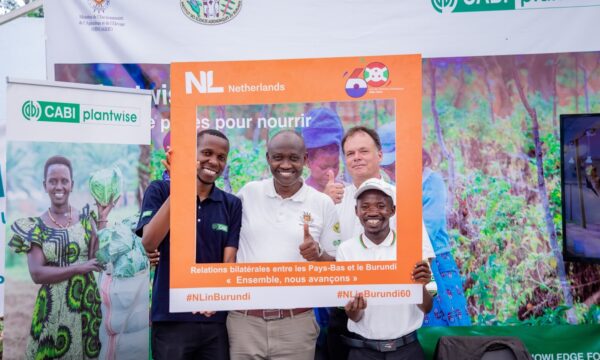Contributed by Melanie Bateman, CABI Switzerland
In the mid-1980s, in order to respond to problems associated with the sale and use of pesticides, the FAO Conference adopted the International Code of Conduct on the Distribution and Use of Pesticides. This document has subsequently been revised several times in order to keep pace with changing circumstances. The newest International Code of Conduct on Pesticide Management was approved by the FAO Conference in June 2013.The objectives of the Code are to establish voluntary standards of conduct for all public and private entities engaged in, or associated with, the management of pesticides, particularly where there is inadequate or no national legislation to regulate pesticides. As such, it is a valuable resource for governments in general and agricultural advisors in particular.
The Code establishes good conduct in pesticide management, listing government and industry obligations on topics such as pesticide management; testing to evaluate safety, efficacy, and environmental fate; reducing health hazards; regulatory and technical requirements; availability and use; distribution and trade; information exchange and prior informed consent; labelling, packaging, storage, and disposal; and advertising. The 2013 revised Code of Conduct is strengthened in particular with respect to human health, the environment and vulnerable groups such pregnant women and children.
Through Plantwise, CABI endeavours to promote sustainable plant health management and to support implementation of the Code of Conduct. Plant doctors are trained within the Plantwise programme to offer sustainable plant health management advice to farmers following the principles of Integrated Pest Management (IPM). Where the use of pesticides is unavoidable, plant doctors are advised to recommend only locally-registered and available pesticides to the extent that this information is available. Furthermore, plant doctors are made aware that they must not recommend pesticides that are subject to international restrictions, such as those listed by the Stockholm Convention on Persistent Organic Pollutants, the Rotterdam Convention on the Prior Informed Consent Procedure for Certain Hazardous Chemicals and Pesticides in International Trade, and the Montreal Protocol on Substances that Deplete the Ozone Layer, as well as pesticides listed as Classes Ia and Ib by the WHO Recommended Classification of Pesticides by Hazard (WHO, 2009).
Above all, plant doctors are encouraged to give advice that keeps pesticide usage to the lowest effective level and ensures minimal risk to human health and the environment. For more information, refer to the Plantwise policy on the Use of Pesticides.
Related News & Blogs
How plant clinics are strengthening crop health services in Bangladesh
When the first-ever plant clinic in Bangladesh opened in Dhaka in 2013, it initially faced a lack of interest due to its novelty and limited awareness among farmers. However, it went on to expand, providing advice to over 17,000 farmers and led to the…
2 July 2025





